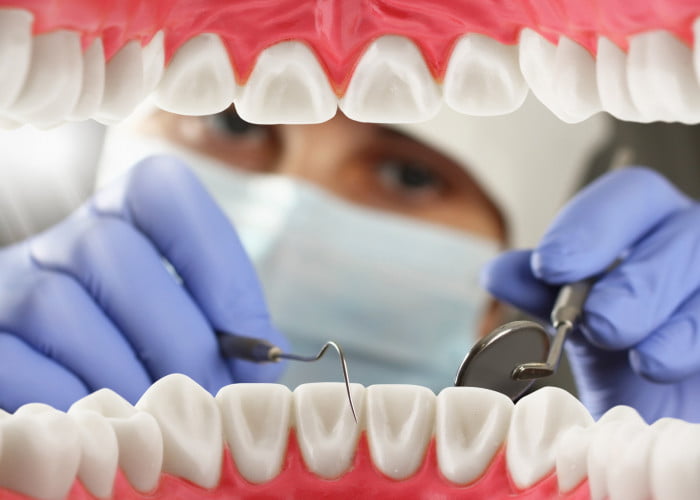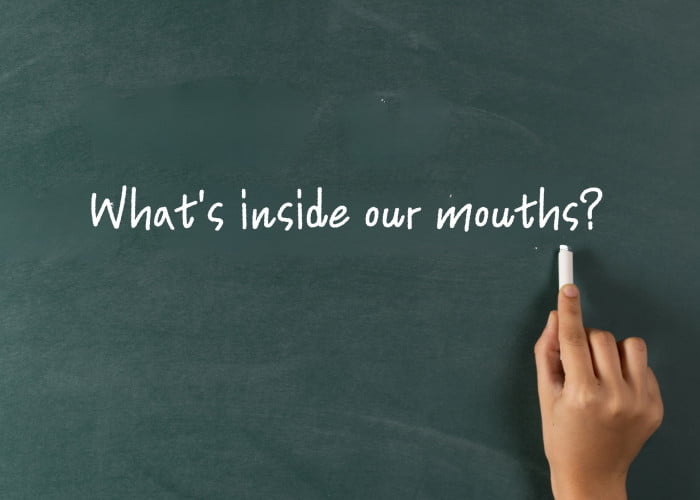Looking to prevent the ongoing growth of cavities? Explore effective strategies on how to stop cavity from growing. This article provides practical tips on halting cavity progression and safeguarding your dental health. Discover expert methods and valuable advice to put a stop to cavity development starting now.
What’s inside our mouths?
Inside our mouths, a diverse range of bacteria coexist, comprising both beneficial and harmful strains. These bacteria inhabit various surfaces, including our teeth, tongue, gums, and even lips. While some bacteria contribute to oral health, others can lead to dental issues such as cavities, gum infections, and gingivitis.
Beyond bacteria, our mouths house an array of specialized cells that perform essential functions. Mucous cells line the mouth and throat, acting as a protective barrier against bacteria and viruses. Salivary glands contain cells responsible for producing saliva, which moisturizes the mouth and prevents dryness.
Moreover, our mouths contain several vital organs involved in eating and speaking processes. The tongue, for instance, facilitates chewing and enables speech production. The jaw assists in biting, chewing, and supporting facial structure. The throat, or pharynx, aids in swallowing food and helps us breathe. Additionally, the nasal cavity, located above the oral cavity, plays a role in respiratory functions.
What goes on inside our mouths all day?
Our mouths are busy places all day long. We use them to eat, drink, talk, and breathe. Inside our mouths, there are many different things happening at once.
As soon as we start eating, our teeth begin to break down the food into smaller pieces. Our saliva also starts to mix with the food, helping to break it down and making it easier to swallow. The tongue pushes the food towards the back of the mouth, where it is swallowed and sent down the esophagus to the stomach.
Throughout the day, our mouths produce saliva to help keep our mouths moist and clean. Saliva also contains enzymes that help to break down food and protect our teeth from decay. When we talk, air flows through our mouths and over our vocal cords, allowing us to produce sounds and speak.
Read more: Factors That Cause A Dental Implant Failure?
-

What goes on inside our mouths all day?
Preventing cavities and tooth decay
Tooth decay and cavities are common dental problems that can lead to pain, infection, and tooth loss. Fortunately, there are many things you can do to prevent tooth decay and keep your teeth healthy.
One of the most important things you can do is maintain good oral hygiene habits. This includes brushing twice a day with a fluoride toothpaste, flossing daily, and using a mouthwash to kill bacteria.
It is important to visit your dentist regularly for checkups and cleanings. Your dentist can help detect and treat cavities early, before they become more serious problems.
Eating healthy can also help prevent tooth decay. Avoid foods and drinks that are sugary and acidic, which can wear down tooth enamel and lead to tooth decay. Instead, choose foods rich in calcium, phosphorus, and other minerals that help keep teeth strong.
-

Preventing cavities and tooth decay
How do I know if I have a cavity?
Are you wondering how to determine if you have a cavity? Identifying the presence of cavities is crucial for timely dental intervention. Here are some telltale signs that may indicate the existence of a cavity:
- Tooth Sensitivity: Do you experience sharp pain or sensitivity when consuming hot, cold, or sweet foods and beverages? This discomfort could signify a cavity.
- Toothache: Persistent toothache, especially while biting down or applying pressure, might be a sign of a cavity. The pain can vary in intensity and duration.
- Visible Holes or Pits: Inspect your teeth for any visible holes, pits, or dark spots. These are often indicators of tooth decay and potential cavities.
- Tooth Discoloration: Noticeable discoloration, such as brown, black, or white spots on your teeth, could suggest the presence of a cavity.
- Bad Breath: Unpleasant breath that persists even after practicing proper oral hygiene might be related to tooth decay caused by cavities.
- Dental Sensitivity: If your teeth are sensitive to sugary or acidic substances, it could be due to enamel erosion caused by cavities.
- Swelling or Pus: In advanced cases, cavities can lead to infection, resulting in swelling, redness, or the presence of pus around the affected tooth.
See more: Cavities on front teeth
-

How do I know if I have a cavity?
How do I stop a cavity from growing?
If you have a cavity, it’s important to take action to prevent it from getting worse. Here are some steps you can take to stop a cavity from growing:
- Maintain good oral hygiene habits: Brush your teeth twice a day with fluoride toothpaste, floss daily, and use mouthwash to kill bacteria. This will help remove food particles and bacteria from your teeth and gums, preventing the cavity from getting worse.
- Cut back on sugary and acidic foods: Sugary and acidic foods and drinks can erode tooth enamel and make cavities worse. Cut back on these foods and choose healthier options like fruits, vegetables, and dairy products.
- Use fluoride treatments: Fluoride treatments can help strengthen tooth enamel and prevent cavities from getting worse. Your dentist may recommend a fluoride rinse or gel to use at home, or may apply a fluoride varnish during your dental visit.
- Get a filling: If your cavity is small, your dentist may be able to fill it with a dental filling. This will help prevent the cavity from getting worse and protect the tooth from further decay.
- Get a crown: If your cavity is larger or more severe, your dentist may recommend a dental crown. A crown is a tooth-shaped cap that covers the damaged tooth, protecting it from further decay.
-

How do I stop a cavity from growing?
How are cavities treated?
When it comes to treating cavities, several effective methods are available. The treatment approach depends on the severity and extent of the decay. Here are some common techniques used by dentists to address cavities:
- Dental fillings: If your cavity is small or medium-sized, your dentist may recommend a dental filling. This involves removing the decayed part of the tooth and filling the space with a material like composite resin or amalgam. Fillings can be color-matched to your natural teeth and are a quick and easy way to treat cavities.
- Crowns: If your cavity is large or severe, your dentist may recommend a dental crown. This involves removing the decayed part of the tooth and placing a tooth-shaped cap over the remaining part of the tooth. Crowns can be made from materials like porcelain, metal, or ceramic and are designed to look and function like natural teeth.
- Root canal therapy: If your cavity has reached the pulp or nerve of your tooth, you may need root canal therapy. This involves removing the infected tissue from inside the tooth and filling the space with a material like gutta-percha. Root canal therapy can save your tooth from extraction and restore its function and appearance.
- Tooth extraction: In rare cases, a cavity may be too severe to treat with other methods and the tooth may need to be extracted. Your dentist will discuss replacement options like dental implants or bridges to restore your smile.
-

How are cavities treated?
Schedule Your Appointment
Scheduling an appointment with Dentist For Life in Marysville is easy. You can contact us by phone or fill out our convenient online appointment request form.
Our dedicated and friendly staff is available to assist you and address any inquiries you may have regarding our services. At Dentist For Life, our experienced team of dental professionals is fully committed to delivering top-quality dental care to patients of all ages. Whether you require a routine checkup, a filling, or advanced dental treatment, we are here to provide the assistance you need.
Conclusion
Understanding how to stop cavity from growing is crucial for maintaining optimal oral health. By implementing preventive measures such as regular brushing and flossing, limiting sugar consumption, and scheduling routine dental check-ups, you can effectively prevent cavities and halt their progression.



